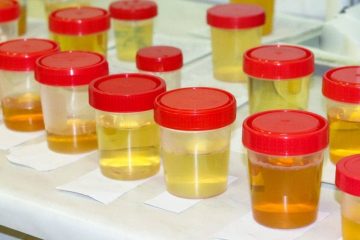How are peptides used to improve immune function?

An amino acid chain makes up a peptide. The cells respond to threats by sending signals through them. Specific peptides boost the immune system. These compounds are studied by scientists for their effects on inflammation. bluumpeptides.com looks at how peptides strengthen immune defenses and why doctors recommend them for certain health conditions.
Antimicrobial peptide function
To protect itself from germs, the body makes antimicrobial peptides. Two groups stand out here: defensins and cathelicidins. What makes these peptides special goes beyond killing germs directly. They pull immune cells toward infected areas and wake up other immune responses. Take LL-37 as an example. It has been extensively tested in labs. Inflammation is controlled through the blocking of bacterial poisons. A synthetic version is prescribed to patients who catch infections easily. The treatments help fill gaps in natural defenses.
Thymosin alpha treatment
Medical researchers have focused heavily on thymosin alpha-1 for good reason. It contains 28 amino acids and comes from the thymus gland. Its main job involves helping T-cells mature properly. White blood cells called T-cells hunt down infected or abnormal cells. The body cannot fight disease if it lacks enough functional T-cells. Clinics use thymosin alpha-1 for several problems:
- Boosting T-cell numbers in people with weak immune systems
- Making vaccines more effective in older patients
- Treating hepatitis B and C infections
- Raising natural killer cell counts
The peptide changes how cells produce immune proteins. It also keeps different T-cell types balanced. Most treatment plans call for injections under the skin twice a week. Patients typically continue this schedule for months to see lasting improvements.
Immunomodulatory peptide action
Other peptides have proven useful for adjusting immune responses. BPC-157 repairs damaged tissues while controlling inflammation chemicals. Epithalon works to boost immunity by affecting melatonin output. Each peptide locks onto specific spots on immune cells called receptors. The system is fine-tuned without shutting down. Regular immune drugs often suppress everything, leaving patients vulnerable. Peptides avoid this problem by targeting narrow pathways. Your body still watches for cancer cells and fights off new infections.
Clinical research results
Hospitals and universities have run trials testing peptides on real patients. The data looks promising. Studies on aging showed that some peptide mixes make older immune systems behave younger. Cancer centers tried adding peptides to standard treatments. Some patients responded better when peptides were part of the plan. Autoimmune research has opened another door. Certain peptides calm down overactive immune attacks without creating total weakness. Early tests suggest they lower harmful antibodies while keeping good immunity intact. Chronic fatigue patients have also participated in peptide trials. Doctors wanted to see if resetting immune function would help. A portion of participants felt better after treatment, though more research is needed.
Safe peptide administration
Getting peptides requires working with a doctor who understands these treatments. Most immune peptides must go under the skin through injections. Swallowing them does not work because stomach acid destroys the molecules before they act. Doctors order blood tests throughout treatment. They check immune markers and inflammation levels to track progress. When the immune system adjusts, people feel tired or get mild flu symptoms. Those with certain autoimmune diseases should avoid immune-boosting peptides. Stimulating an already overactive immune system worsens conditions.











